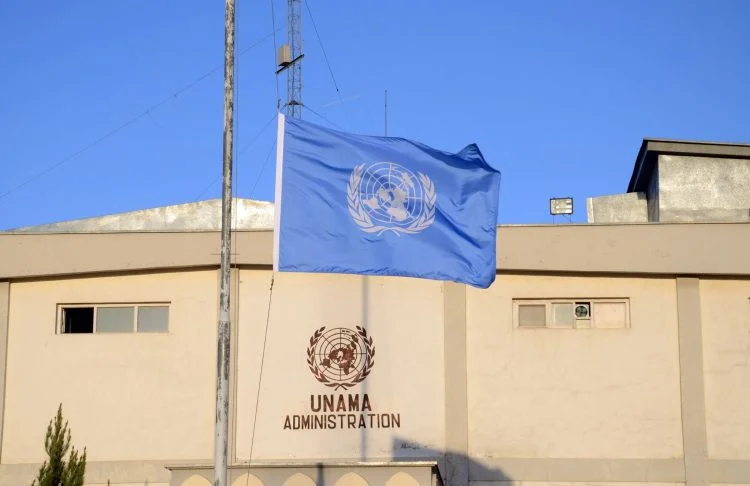Foreign Minister of Germany Annalena Baerbock officially reopened her country’s embassy in war-ravaged Syria during a one-day visit to Damascus on Thursday.
Baerbock reopened the mission, which closed in 2012 amid the Syrian civil war, on her second visit there since the fall of president Bashar al-Assad over three months ago.
Her trip also came weeks after sectarian massacres claimed more than 1,500 lives on Syria’s Mediterranean coast — the heartland of Assad’s Alawite minority.
“The horrific outbreaks of violence two weeks ago have caused a massive loss of trust,” said Baerbock. “The targeted killing of civilians is a terrible crime.”
She called on the transitional government of interim president Ahmed al-Sharaa to “control the actions of the groups within its own ranks and hold those responsible accountable.”
But she stressed that “we want to support the Syrians together with our European partners and the United Nations” as they rebuild their country.
Germany on Monday announced 300 million euros ($325 million) for reconstruction aid in Syria, as part of a donor conference that gathered total pledges of 5.8 billion euros.
A source in the foreign ministry of Germany said Berlin had officially reopened its embassy in Syria, with an initially small diplomatic team working in Damascus.
Consular affairs and visas would continue to be handled from the Lebanese capital Beirut for practical reasons and due to the security situation in Syria.
Also See: EU Pledges €5.8 Billion in Aid to Syria in Post-al-Assad Donor Drive
‘New start’
The ministry source said that “Germany has a paramount interest in a stable Syria. We can better contribute to the difficult task of stabilisation on the ground.
“We can build important diplomatic contacts and thus, among other things, push for an inclusive political transition process that takes into account the interests of all population groups.”
The source added that “with our diplomats on the ground, we can now also once again engage in important work with civil society. And we can respond directly and immediately to serious negative developments.”
Baerbock in her statement warned Syria’s interim authorities that a “new start” with Europe was conditional on it delivering security to all Syrians, regardless of faith, gender or ethnicity.
She said many Syrians “are scared that life in the future Syria will not be safe for all Syrians”.
In the days after March 6, Syria’s coast was gripped by the worst wave of violence since Assad’s overthrow.
According to the Syrian Observatory for Human Rights, security forces and allied groups killed more than 1,500 civilians, most of them Alawites, the minority to which Assad belongs.
Since Assad’s overthrow, Israel has launched hundreds of strikes on military sites in Syria, arguing the weapons must not fall into the hands of the new authorities whom it considers jihadists, and deployed troops to a UN-patrolled buffer zone on the Golan Heights.
Baerbock said “the influence of foreign actors has brought nothing but chaos to Syria in the past”.
“Even today, attacks on Syrian territory threaten the country’s stability. All sides are called upon to exercise maximum military restraint and not to torpedo the intra-Syrian unification process.”
This news is sourced from The Edition and is intended for informational purposes only.

![Germany reopens its embassy in Syria after 12 years, pledging aid while urging stability and accountability from new leaders. [Image via AFP]](https://southasiatimes.org/wp-content/uploads/2025/03/413431_3_f9e6f8f8f82c30299f7ec57c8a2b788c3049a5af_medium.webp)




